Parisian photographer Maxime Imbert’s lustrous portraits of women, which he describes as “desperately romantic,” are the result of his own curiosity. “I often see myself as those boys in The Virgin Suicides,” Imbert confesses. “In love with the mysterious Lisbon daughters and daydreaming about what they might do together when they’re home alone.” From this imagined perspective, the watchful gaze of an infatuated adolescent, the women in his work become enchanting enigmas. The divide between innocence and the erotic becomes a question mark. In one image, which recalls the opening scene of The Virgin Suicides, a young woman in braided pigtails and a sheer tank top cheeks a tricolored popsicle on a shady, suburban street. The photo asks: Is she coy or cunning? “I would say that the answer is in the eye of the viewer,” Imbert imparts in the following interview, in which he also discusses nostalgia and the central themes in his work.
When were you first attracted to photography? Do you remember the first photos that moved you?
I have this vivid memory of the Helmut Newton retrospective at Le Grand Palais in Paris in 2012. I sat for hours in front of his Big Nudes. I was hypnotized by those bigger-than-life-sized prints of standing naked women with this incredible confidence in their eyes. That was the first time I took photography seriously.
When — and why — did you start taking your own photos?
My first year at Central Saint Martins where I was studying fine art. I fell in love with its darkroom. So quiet and those red lights. I really felt I could express myself freely there.
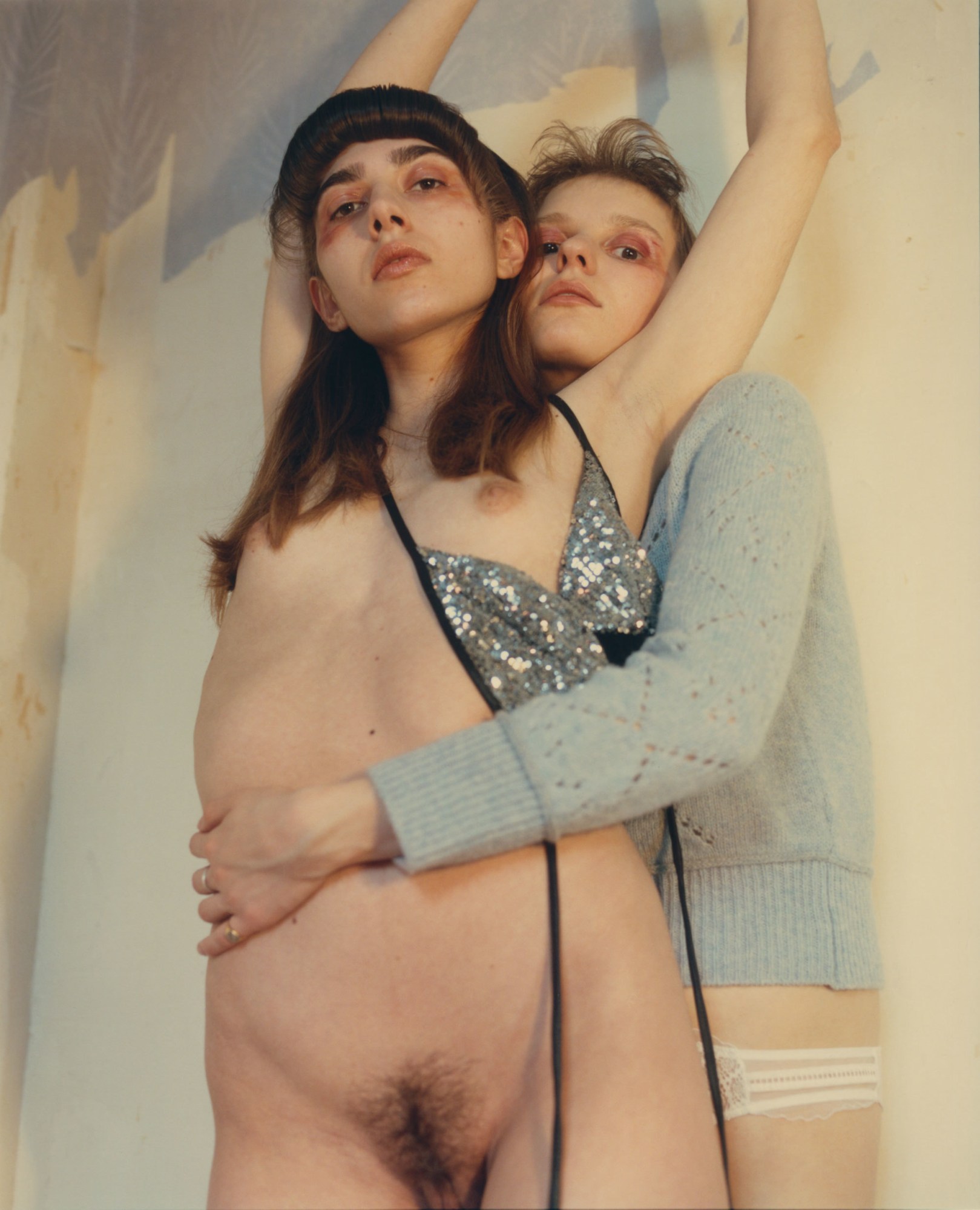
Why are women the main subjects of your work? Why have you always felt closer to the feminine sensibility?
Because I’m curious. I often see myself as those boys in The Virgin Suicides. In love with the mysterious Lisbon daughters and daydreaming about what they might do together when they’re home alone. Girls have always been the heroes of my own story.
Your photos often have nude tones or backgrounds. What attracts you to those tones? Is it a nod to the innocence of past decades?
Our generation is so very nostalgic of the past decades. Look, the 2000s are making a comeback, and it’s 2016! So I guess you can see this phenomenon happening everywhere. I’m very anchored in the present, but with this twist of nostalgia making me attracted to certain forms of aesthetics. I recently visited New York for the first time. Our collective consciousness is so filled with imagery of this city—Diane Arbus’ Central Park portraits or Joel Meyerowitz’s photos of the streets of Manhattan; Andy Warhol; the Velvet Underground. I felt nostalgia for a place I’ve never been before. It was a very funny experience.
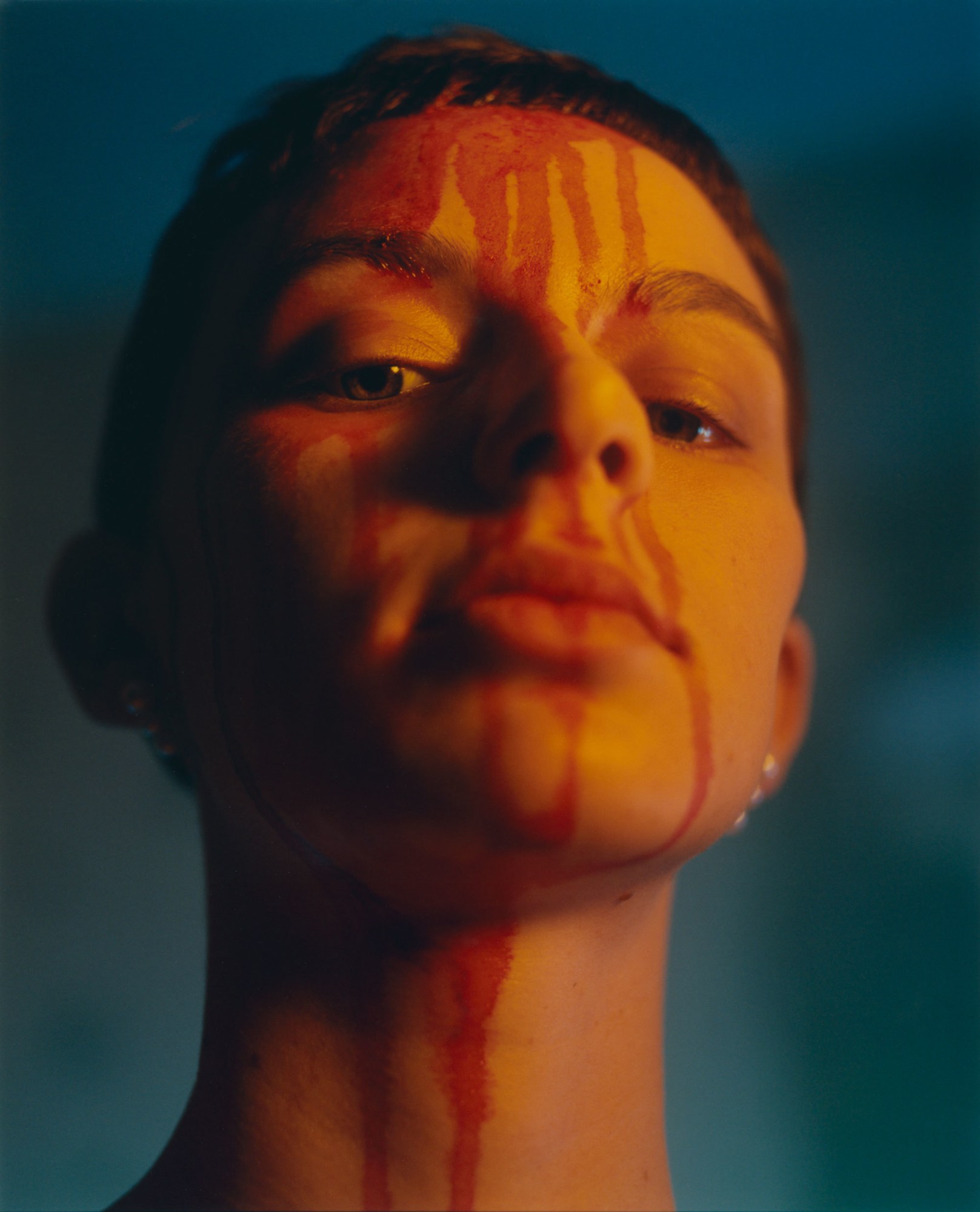
I love the photo of the girl eating from the candy necklace around her friend’s neck. It reminds me of my youth and a closeness I felt to my friends at that time. Why is friendship and intimacy a central theme in your work?
Yes! Her friend is actually her twin sister. So obviously, their relationship is quite special. Storytelling plays a crucial part and so themes such as friendship and intimacy become important because they create this narrative I’m looking for within my work. I’m thinking of this scene in Dogtooth of the two sisters licking each other’s stomachs and shoulders to pass the time. Disturbing but visually so interesting.
Which photographers have most inspired your own work?
Tough question. If I had to pick one body of work I would say Avedon’s In the American West. It’s simply amazing. But I tend to be inspired by more than just photography in my work. Movies a lot—horror and thriller films, especially. Carrie is probably my all-time favorite. Sissy Spacek is such a brilliant actress. Her character here is so well balanced—both adorable and terrifying. I like to have this mixed feeling of tenderness with a hint of insanity in my pictures.
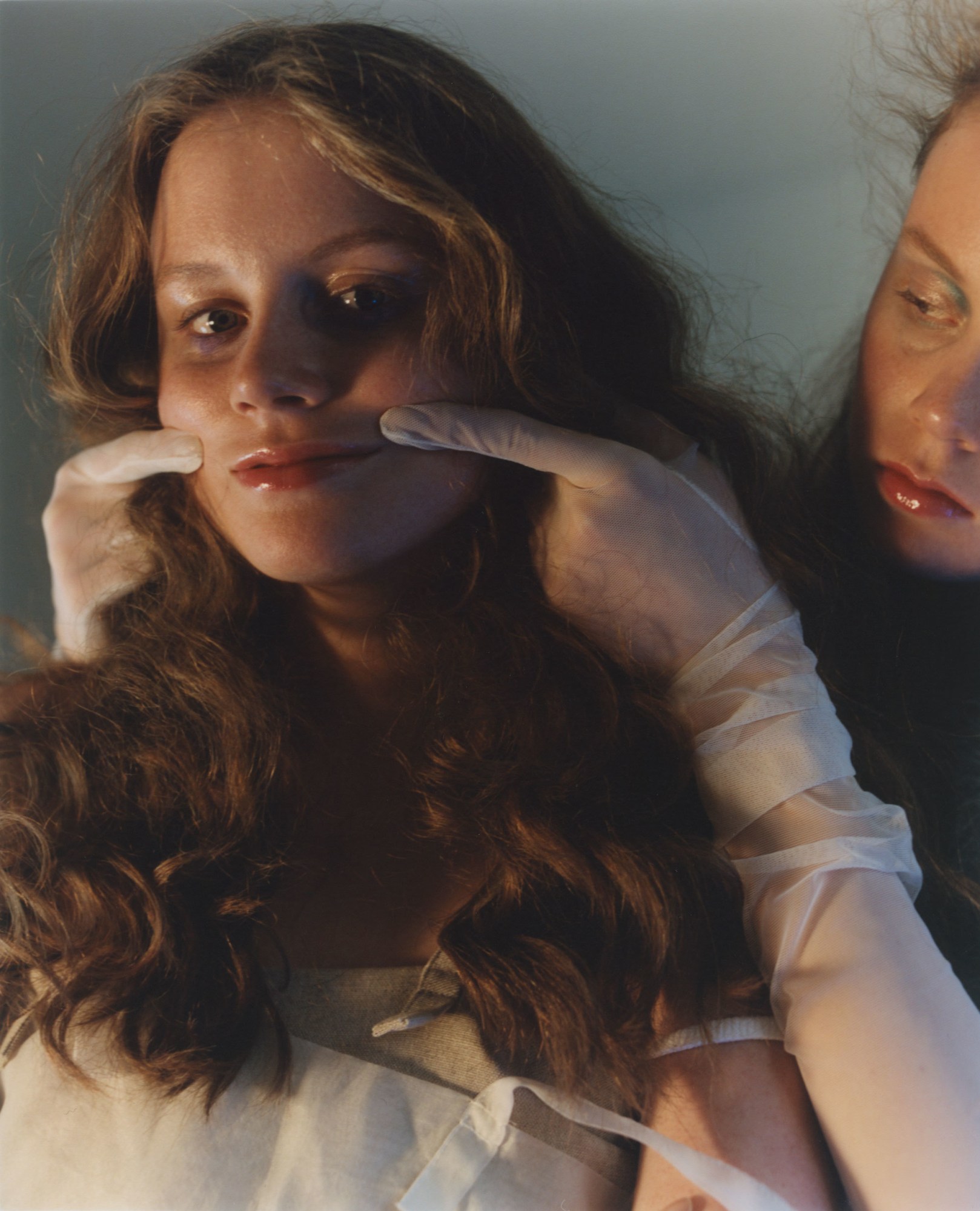
You’ve said that you are a collector of beauty. What does beauty mean to you? What is your definition of beauty?
The act of photography is an act of appropriation. So yes, I collect. I think I can be quite an obsessive person. I often have faces in my head and I have to go on a search in order to find them. Beauty is my motor; it gives me an adrenaline kick. But I don’t think I have a definition of beauty, it is too personal and subjective to put words on it, and it changes and evolves all the time.
What’s more beautiful: perfection or imperfection?
I’d choose the perfection of imperfection. They are complementary and belong together.
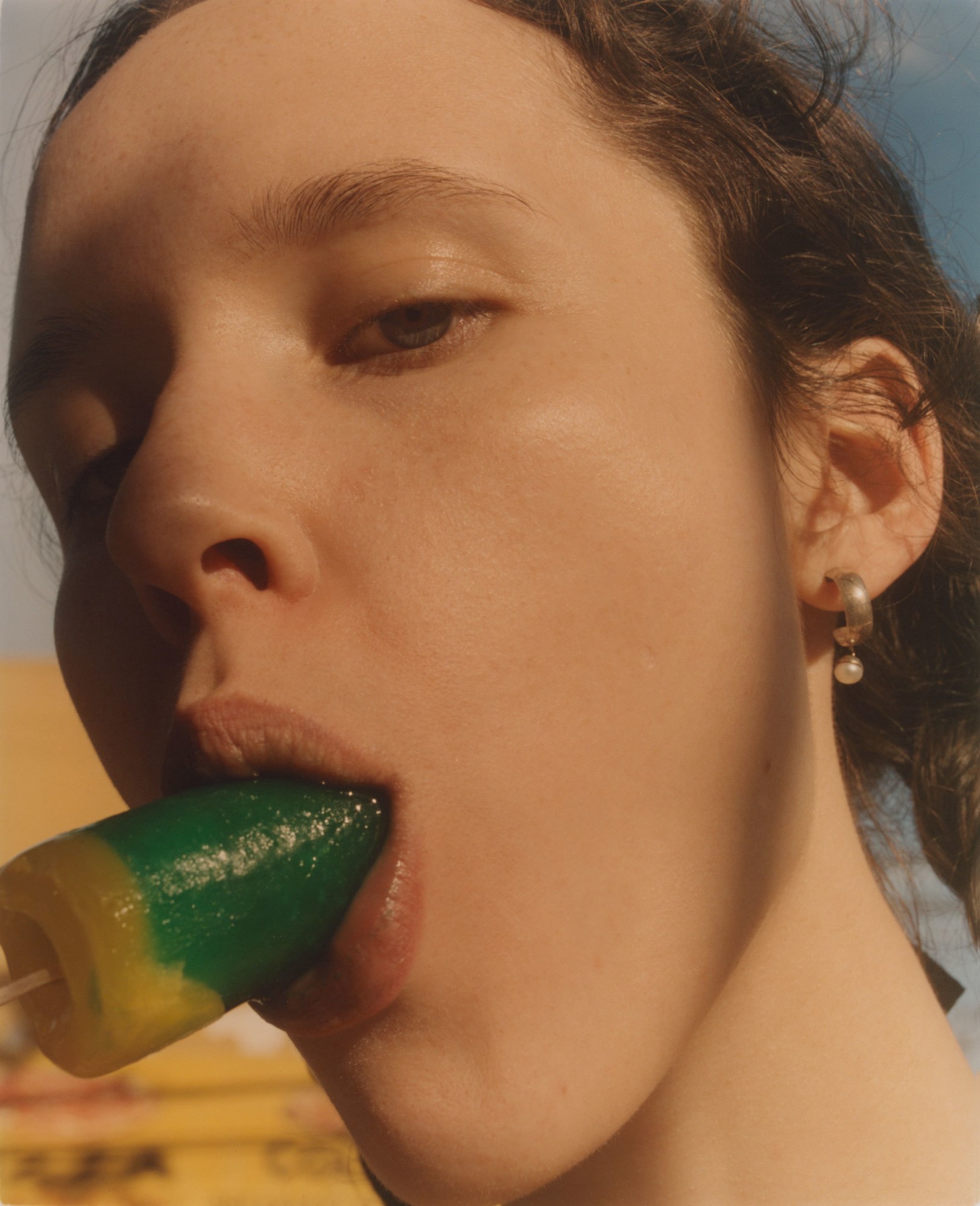
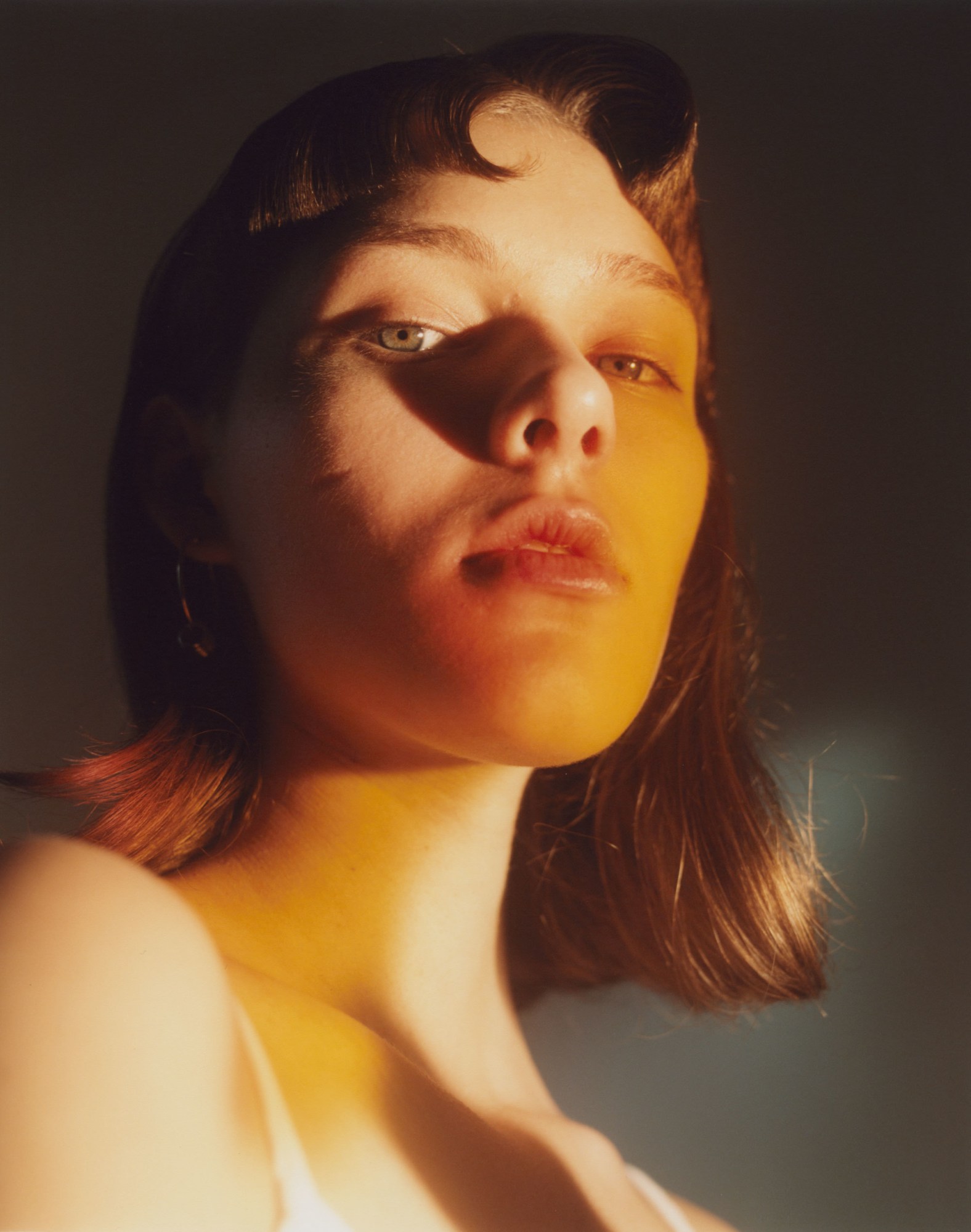
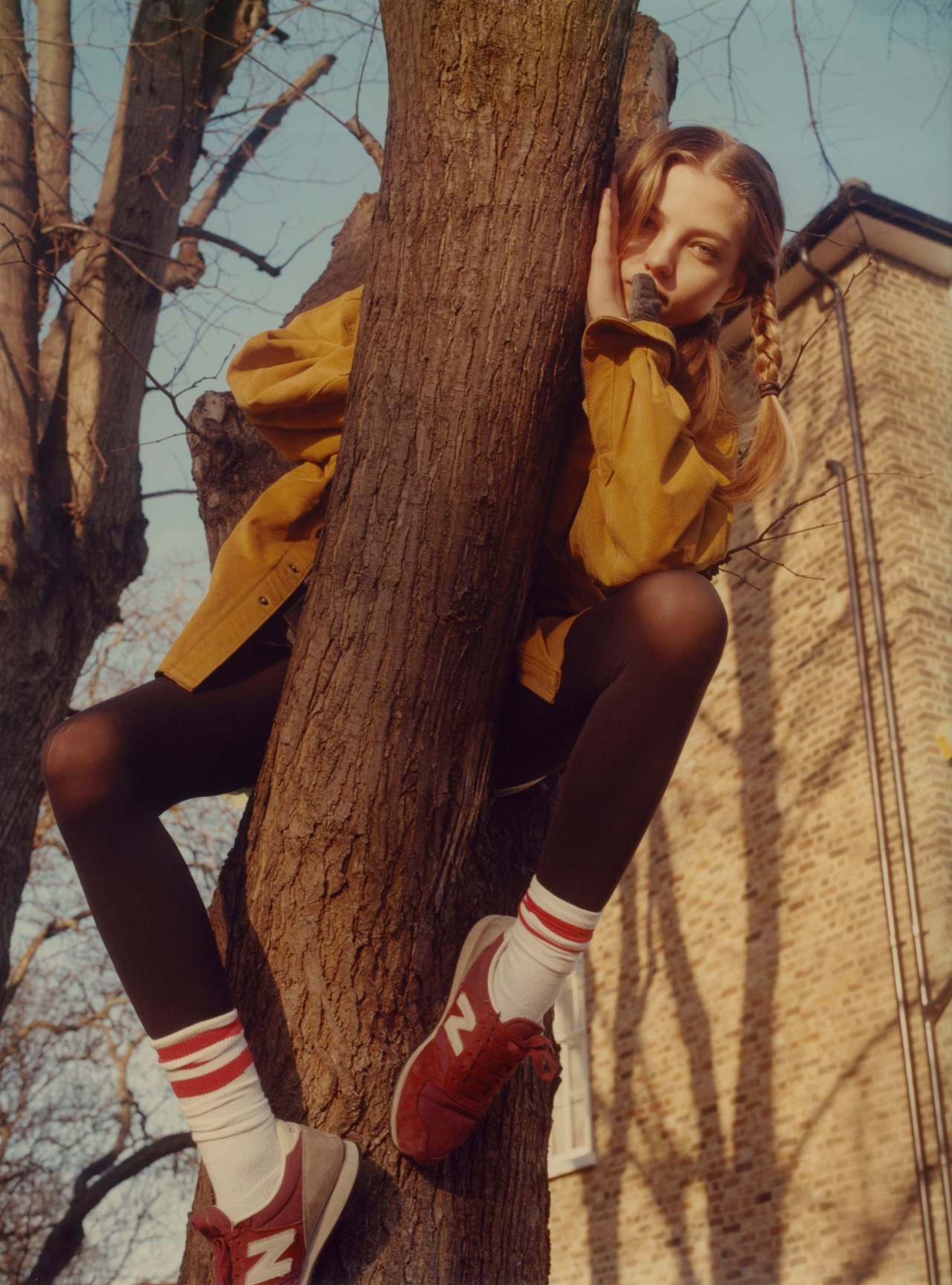

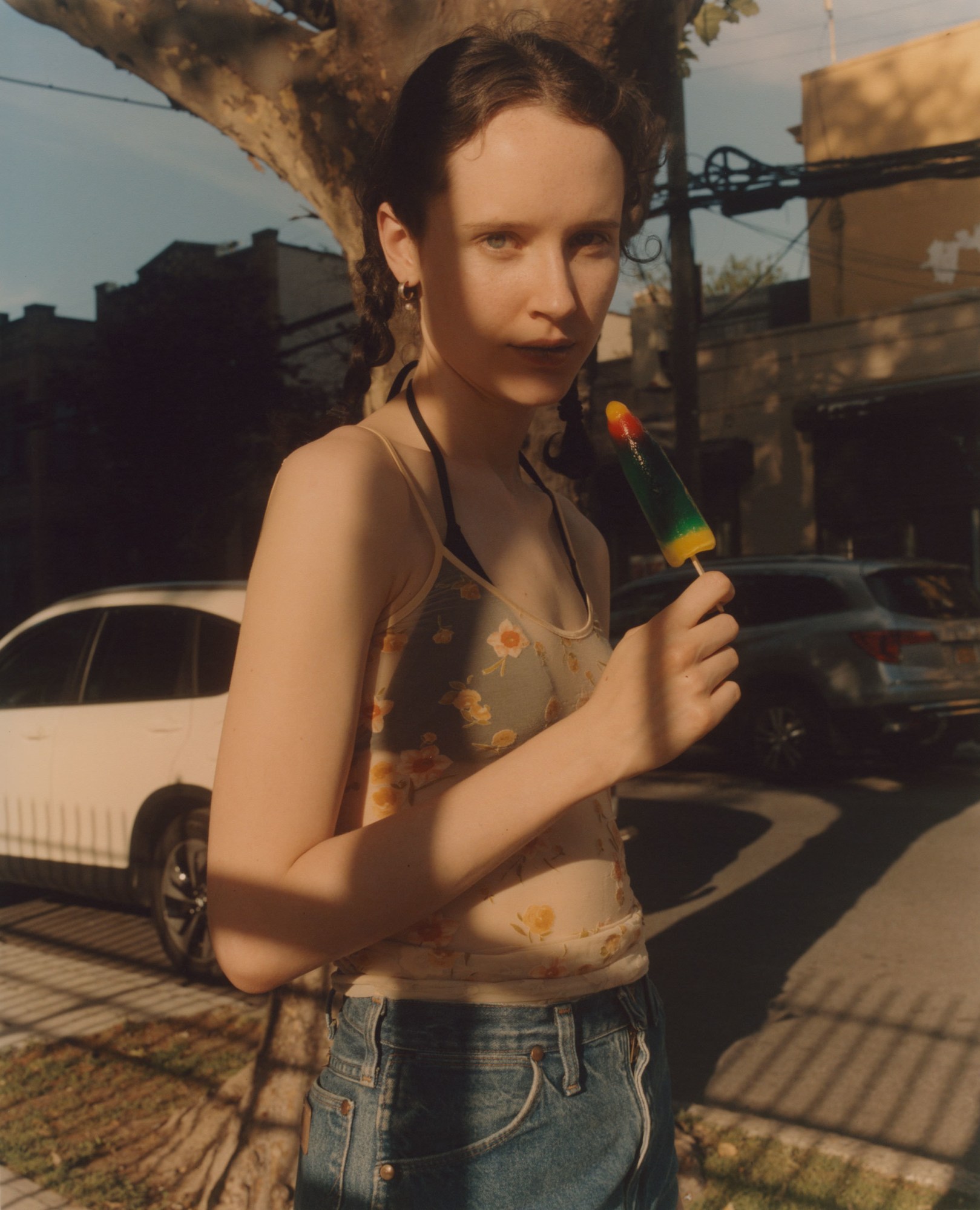
Credits
Text Zio Baritaux
Photography courtesy Maxime Imbert
